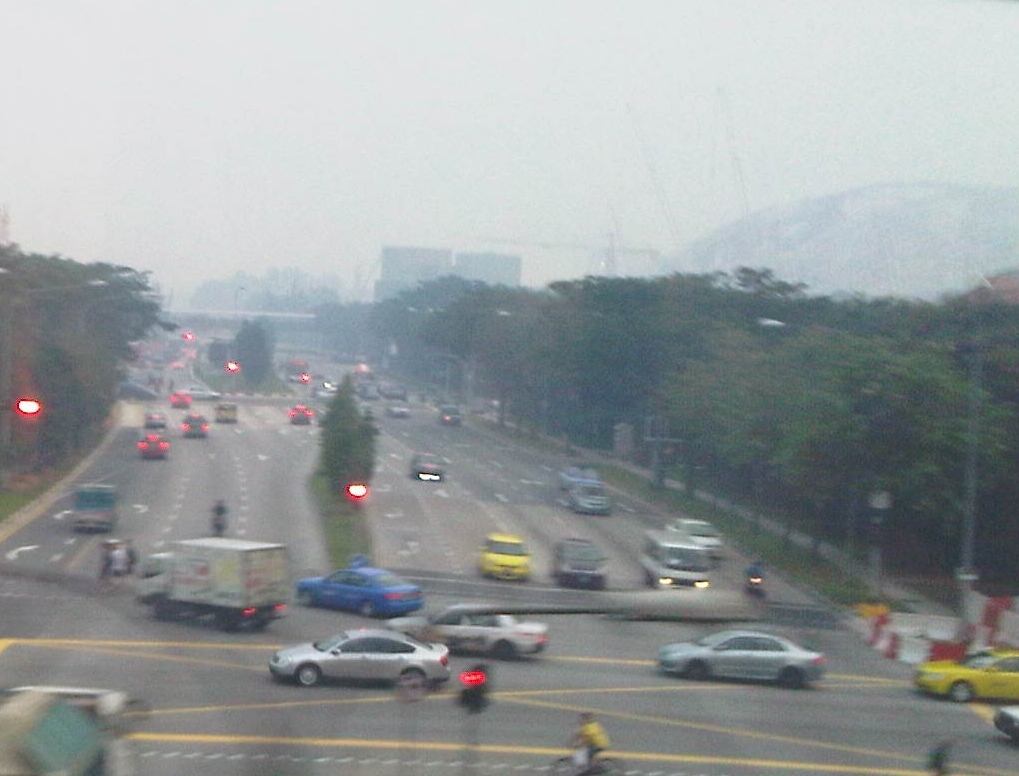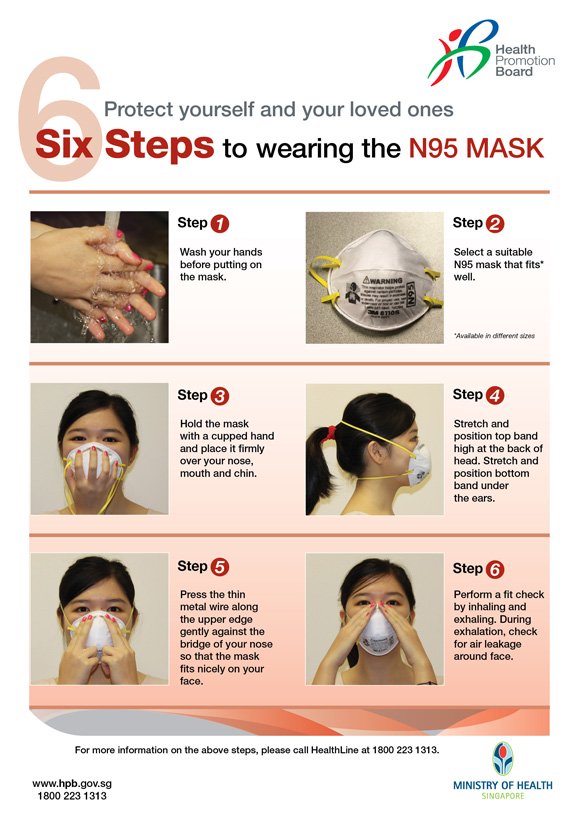You are here

Why does haze matters for your health?
Haze is a sign of air pollution by fine particles (consisting of microscopic solid or liquid droplets). When these particles enter your lungs, they may pose severe health problems, for example:
• worsening of heart or lung disease
• heart attacks
• irregular heartbeat
• worsening of asthma
• symptoms, such as throat irritation, coughing or difficulty breathing
People with heart or lung diseases, children and older adults are more sensitive to the harmful effect of haze. Healthy individuals may not be spared and will experience temporary symptoms from exposure to haze.
How is the severity of haze situation measured?
It is measured by PSI, which stands for 'Pollutant Standards Index'. This index is developed by the United States Environmental Protection Agency (USEPA).
Singapore’s National Environmental Agency (NEA) monitors PSI constantly via network of monitoring stations and the Ministry of Health (MOH) issues specific health advisory for various range of 24-hour PSI.
|
24-hour PSI |
Healthy persons |
Elderly, pregnant women, children |
Persons with chronic medical conditions especially lung or heart disease |
|
<100 |
Normal activities |
Normal activities |
Normal activities |
|
101- 200 |
Minimise prolonged (continuous exposure for several hours) or strenuous (involving a lot of energy or effort) outdoor physical exertion |
Minimise all outdoor activity |
Minimise all outdoor activity; Wear N95 mask if prolonged outdoor activity is unavoidable (Persons with chronic lung or heart conditions who feel uncomfortable when wearing the N95 masks should stop doing so and consult a doctor before carrying on) |
|
201 – 300
|
Avoid prolonged (continuous exposure for several hours) or strenuous (involving a lot of energy or effort) outdoor physical exertion Wear N95 mask if prolonged and strenuous outdoor activity is unavoidable |
Avoid all outdoor activity Wear N95 mask if prolonged outdoor activity is unavoidable (N95 mask not suitable for pregnant women and children) |
Avoid all outdoor activity Wear N95 mask if prolonged outdoor activity is unavoidable (Persons with chronic lung or heart conditions who feel uncomfortable when wearing the N95 masks should stop doing so and consult a doctor before carrying on) |
|
>300
|
Minimise all outdoor exposure Wear N95 mask if outdoor activity is unavoidable |
Avoid all outdoor activity Wear N95 mask if outdoor activity is unavoidable (N95 mask not suitable for pregnant women and children) |
Avoid all outdoor activity Wear N95 mask if outdoor activity is unavoidable (Persons with chronic lung or heart conditions who feel uncomfortable when wearing the N95 masks should stop doing so and consult a doctor before carrying on) |
Adapted from MOH Health Advisory for General Public and Workers (as of 22 Jun 2013)
What are some Ailments caused by haze and how you can deal with them?
|
Symptoms |
Actions to be taken |
|
Tearing, stinging sensation of eyes |
Apply eye drops or natural tear supplements to wash away any pollutant particles in your eyes and to provide symptom relief. |
|
Runny nose, blocked nose, Sneezing |
Ask your pharmacist to recommend relevant medication for symptoms. If you are already taking medicine for allergy, make sure it is taken regularly. Consult your doctor if symptoms persist. |
|
Coughing; dry, irritated throat |
Ask your pharmacist for the relevant symptom reliever. Maintain good fluid intake by drinking about 10 to 12 glasses of water a day, unless otherwise advised by your doctor. See your doctor if cough persists for longer than 7 days or when signs of worsening are observed (e.g. thick phlegm,high fever) |
|
Difficulty in breathing; chest tightness |
Please see your doctor immediately. Patients with asthma should always carry their reliever inhaler wherever they go. Those with asthma or airway/ lung disease should take any prescribed medicine as instructed by your doctor and monitor your condition closely. Consult your doctor again if your condition does not improve. |
Should you wear face masks? What should you look out for?
According to NEA health advisory, when the PSI level exceeds 150 (in the 'Unhealthy' range), people with heart or lung disease or those who are sensitive to effect of haze are advised to wear a respiratory mask when they go outdoor. However, people with lung or airway disease are advised to consult their doctors on the use of respiratory masks as these may sometimes worsen their problem.
Respiratory masks, such as N95 masks, protect the wearers from breathing in the smoke haze particles. Haze particles are predominantly made up of fine partlcles that are 2.5 microns or smaller (PM2.5). Studies have shown that N95 masks do provide good protection against the haze as they are at least 95% efficient against fine particles that are about 0.1 to 0.3 microns. It is even more efficient (99.5%efficient) against particles that are 0.75 microns and larger. These masks should be changed when they are become distorted in shape or get soiled and they should not be shared.
N95 masks are designed to seal to the wearer's face and have to achieve a proper fit. This way, most of the air that is breathed in go through the filter and not through the gaps in between the mask and the wearer's face. Hence, N95 masks are not designed for use on children or people with facial hair (e.g beard). Children should minimize outdoor activities when the PSI levels are above 100 and avoid all outdoor activities if PSI levels reach higher than 300.
Surgical masks and paper masks do not offer the required protection. Their main purpose is to prevent the spread of body fluids and do not filter out haze particles.

Poster from Health Promotion Board and Ministry of Health Singapore
Respiratory masks are available in community and hospital retail pharmacies. Ask your pharmacist on the appropriate selection and use of respiratory mask.
Other tips
Avoid exercising in the open. Aerobic activities make you inhale deeply, hence you breathe in pollutants deep into your lungs. Avoid smoking. Smoking makes your lungs more sensitive to effects of haze particles.
References and for further updates on haze, you may wish to access the following sites:
A public education initiative brought to you by the PSS Community Chapter


